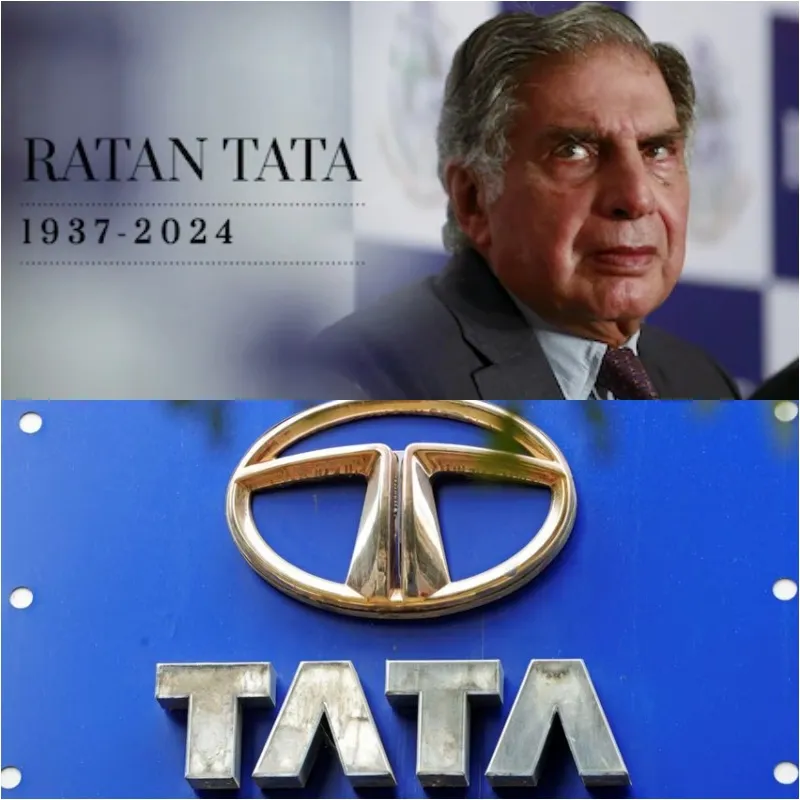Ratan Tata, Visionary Behind India’s Tata Group, Passes Away at 86

Ratan Tata, former chairman of Tata Group, passed away at the age of 86, leaving a legacy that spans not only the Tata conglomerate but also India’s industrial and social landscape. Tata, known for his humility and dedication to progress, transformed the Tata Group into one of India’s largest and most respected business entities. His passing was announced on October 9 by N Chandrasekaran, the current chairman of Tata Sons, who expressed his admiration for Tata’s commitment to excellence, integrity, and innovation.

A Life Dedicated to Innovation and Social Progress
Just two days before his passing, Tata had addressed his followers on social media, dispelling rumors about his health and reassuring them that he was undergoing routine check-ups. Known for his transparency, Tata’s outreach to the public only highlighted his bond with millions of followers across India and beyond.
In his statement, Chandrasekaran described Tata as more than just a former chairman, recalling him as a mentor, guide, and friend. Under Tata’s leadership, the group grew significantly, expanding its global footprint while maintaining its ethical core.

National Condolences and Praise for Ratan Tata
News of Tata’s passing drew heartfelt tributes from Indian Prime Minister Narendra Modi and business leaders worldwide. Prime Minister Modi hailed him as a “kind-hearted and extraordinary man,” highlighting his contributions to India’s industrial landscape and the people’s admiration for his humility and compassion.
“Shri Ratan Tata Ji was a visionary leader, a kind soul, and an extraordinary human being,” Modi shared on social media, adding, “He was loved by many for his unwavering commitment to bettering society.” Google CEO Sundar Pichai also praised Tata’s influence on India’s modern business leadership culture.

Milestones in Ratan Tata’s Career
Ratan Tata became chairman of Tata Group in 1991, leading a conglomerate that included companies across diverse industries like steel, software, and automobiles. Among his notable achievements, Tata oversaw the group’s acquisition of iconic British brands Jaguar and Land Rover in 2008, marking a symbolic shift in business history.
In 2009, Tata fulfilled a personal promise to the Indian middle class by launching the Tata Nano—the world’s most affordable car. The Nano became a symbol of innovation and affordability, further cementing Tata’s reputation as a visionary who prioritized accessibility and economic development.
Under Tata’s leadership, Tata Consultancy Services (TCS) went public in 2004, turning it into one of India’s leading IT companies. He also founded Tata Teleservices in 1996, strengthening Tata Group’s presence in the telecom sector and advancing India’s digital economy.

Legacy Beyond Business: Tata’s Social Media Presence and Advocacy
After stepping down from active management, Tata continued to serve as chairman emeritus of Tata Sons and several other Tata companies. His social media presence only grew over the years, with simple yet impactful posts on social issues, animal welfare, and appeals for unity resonating deeply with his followers.
With over 13 million followers on X (formerly Twitter) and nearly 10 million on Instagram, Tata was India’s “most followed entrepreneur.” His affinity for animals, especially dogs, reflected in his commitment to maintaining Bombay House, Tata Group’s headquarters, as a shelter for stray dogs, honoring a tradition started by Jamsetji Tata, the group’s founder.
The Enduring Influence of Ratan Tata
Ratan Tata’s life and career remain a testament to his commitment to ethical leadership, innovation, and social responsibility. His legacy will continue to influence not only the Tata Group but also generations of business leaders in India and globally. Through his impact on business and society, Tata’s memory will live on, inspiring a future built on integrity and purpose.







